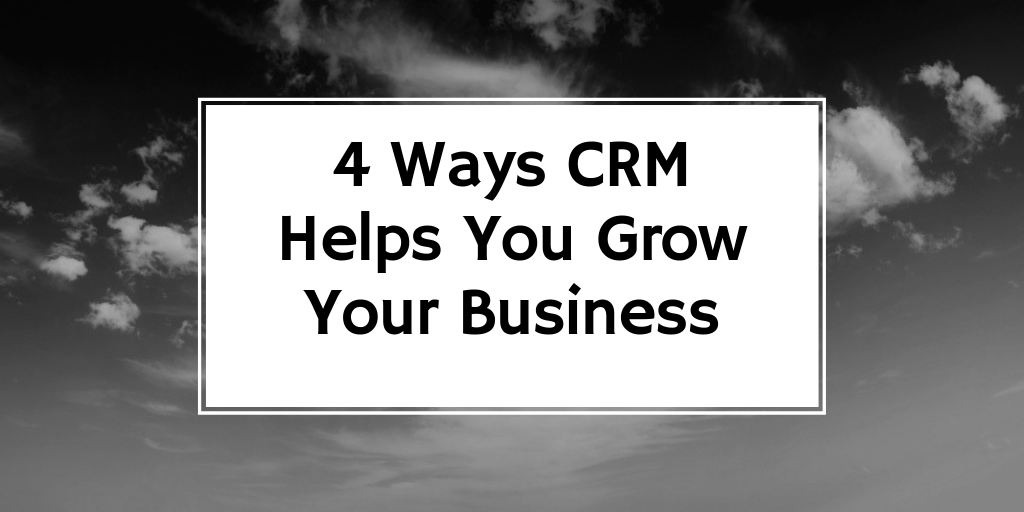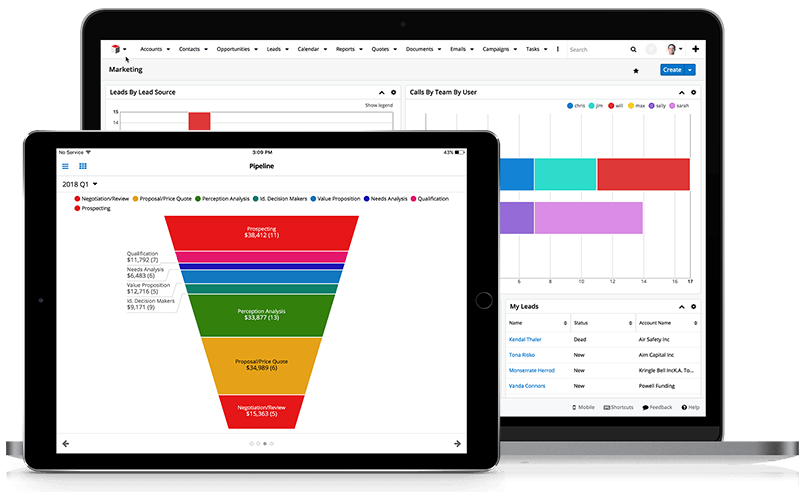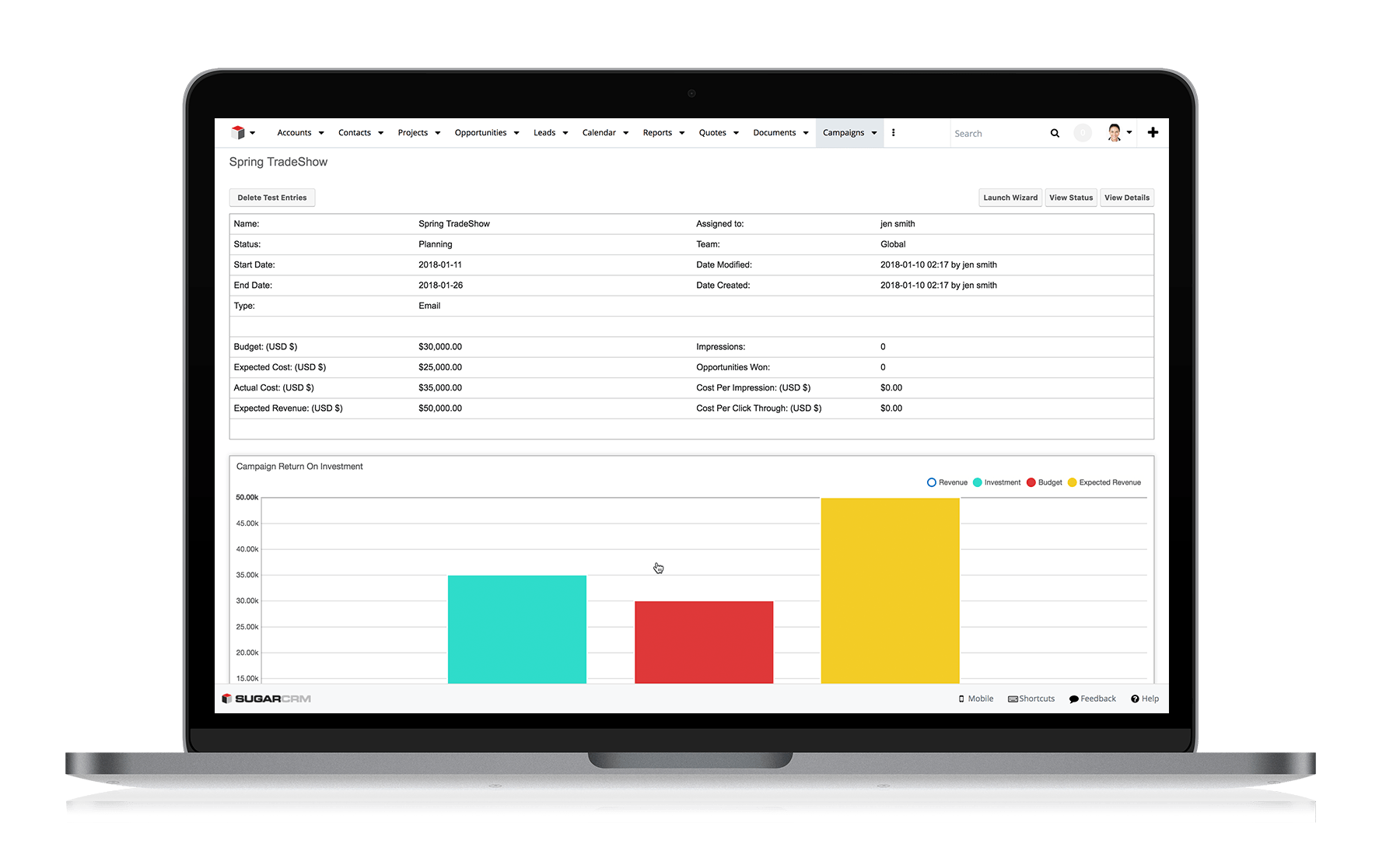
Your CRM system can be your company’s most valuable asset, especially when it comes to enhancing productivity and increasing sales revenue. If the goal is not only to increase revenue but to get and retain new customers, then you need a customer relationship management system. If your company has bills and salaries to pay, then it needs paying customers.
Yet, most customers feel neglected by preferred providers. Then, they stop being customers. Thankfully, you can do something about this with a CRM system—it is the fastest growing software market for a reason.
Here’s how relationship management technology can help grow your business, improve business performance and allow you to be more connected to your customers:
- You get a comprehensive overview of your clients
Relationships are based on understanding and trust. But, you can’t gain understanding without information. And, you don’t want to have to try to put the pieces of a puzzle together each time you interact with a client. If you’re still using spreadsheets, they can get lost, they are difficult to maintain, they are error-prone, and are not very secure.
You might have a Rolodex of business cards you rely on, but that only tells you basic information, there is nothing in-depth on hand. Yet, a CRM helps you succeed because it can be populated with data that is then displayed in a chronological fashion with real-time updates. Now, every designated end user can view the same information, at the same time–improving overall collaboration.
So, you not only get information on ways to contact your customer, but you also get interaction history, email history, marketing campaign history, sales progression, spend history, job role, and more. The more you communicate with the client, the more you learn about them.
You can then store this data into the CRM system so that all it takes is a quick glance to get a full overview. As a result, you can confidently offer relevant products and services that address your prospect’s pain points and needs.

- Input all your leads and contacts in one place
In the sales world, contact information is priceless–so is knowing who to talk to. Instead of fishing for information on every call, you have everything right at your fingertips. Plus, you may not always know when a lead is going to make a purchase. There is no time like the present to start setting up your contacts in a more organized fashion.
You can also segment customers based on their stage in the sales funnel. So, you know exactly what types of messages to send their way. For example, you wouldn’t send a cold lead an extensive pricing sheet and white paper. In contrast, you wouldn’t ask a warm lead what their pain points are when you should probably already know that information.
If everyone is required to enter accurate customer contact information, then there should be no issues when contacting customers. Even as new sales reps come in, they always have continuous and accurate access to customer contact information.

- All interactions can be recorded–from every department
Crafting a message to a prospect or client can be difficult in the sense where you want to communicate in a way that takes them on a logical path through their buying journey. Each step should have a progression, and how you assist with that progression can vary.
But, you don’t want to go backwards–that is a morale and revenue killer. And, it’s easy to go backwards if you don’t have access to interaction history. Say a customer of yours had an issue with a service, and called in to get help but someone else took the call.
Suppose you didn’t know about all this. Then, you call the customer to keep in touch and follow up. Your message for that call is to see how they’re liking the service. Again, you have no idea they had a complaint–because you still rely on spreadsheets.
So, ask you talk to the customer and ask their feedback, they get angry wondering why you don’t know what happened if you’re supposed to be their rep. This is embarrassing for the rep and the company. The customer also wonders if they can trust your judgment and whether they want to spend the time sharing the same complaint with multiple people, going over the same thing repeatedly.
No customer wants to be put in that situation–and the same is true of the sales rep. So, a CRM succeeds because the customer complaint can be logged. The next time you contact the customer, you will know of their last interaction, and instead, ask if their issue was resolved. Now, they will feel like you truly understand their needs and care enough to take note of their interactions with your company.

- You can make more insightful and data-based decisions
Today’s world is all about data and more data. If you depend on pen and paper, you could be leaving a lot of money on the table. With a CRM system, you have a more detailed picture and even advanced reporting features to help you uncover possibilities and golden nugget opportunities.
How many prospects are still cold or lukewarm? Who haven’t you spoken with in a while that could use a follow-up? Is there a new marketing strategy you could deploy?
Can you create another segment to target? Poring through your CRM system can lead to finding many new opportunities and prospects to call. Which clients have not made a purchase in a while? Do you know why?
You won’t be able to get these types of insights from spreadsheets or email chains. You need a single source to help you see the big picture and where you can improve your sales penetration.
In conclusion
CRM can help grow your business because it gives you a greater ability to focus on the customer. When you put your clients at the heart of your business, you improve your chances for greater sales and profits.
The post 4 Ways CRM Helps You Grow Your Business appeared first on FayeBSG.
No comments:
Post a Comment